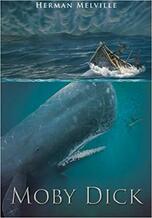weekly column
|
Each week, find a commentary on something connected to verses of Torah or another source of wisdom
|
|
Each week, find a commentary on something connected to verses of Torah or another source of wisdom
|
 (Welcome to the Numbers:13 Project. If you have been following me since Genesis, you know that each week for the next 36 weeks, give or take, I will write a column prompted by the 13th verse of each subsequent chapter of the Book of Numbers. Mostly, I hope to reflect on the climate of our times, but sometimes -- especially in Numbers -- that will be a challenge. For those of you expecting that, as a Beatles fan, I would have elected to go with the Numbers:9 Project, here's another hint for you all: too obvious. If you would like to subscribe to this series, visit the Google group "Aliba D'Rav" or send me an email.) From Asher, Pagiel son of Ochran. Numbers 1:13 Just like a lot of Jews of my generation, I do not have a Hebrew name. I was named (as my parents were) for beloved ancestors who themselves were named in Yiddish. And not only were they named in Yiddish, but they were named in the dialect of Yiddish spoken in their home shtetls. Some people carry a sort of double name – one in Hebrew and one in Yiddish. Most famous of these is the name of the late Lubavitcher Rebbe, Menachem Mendel Schneerson. There are others that are familiar enough if you spend time in the world of Jewish names: Dov Baer, Tzvi Hirsch, Shraga Feivush. But most of us with Yiddish names have only those names. Rabbis who were not raised with Yiddish (like me) often have a hard time deciphering names brought to them by family members preparing for a gravestone or the naming of a child. To the Yiddish-speaker, the nuances of pronunciation are familiar, just like native English-speaker can see the immediate connection among Alexander, Alex and Xander. But what do you do if a granddaughter wants to remember her beloved Bubbe with the Hebrew equivalent of “Hudes,” not knowing its origin or even accuracy? I was named for my father’s father and my mother’s paternal grandfather. Grandpa Jack was named Zelig. And Great-Grandpa Louis was named Leimah. Those were probably pretty common names back in the day, but they cycled out of mode before I could say them. And my Hebrew school teachers – especially the Israeli ones who had cast off Yiddish in favor of Hebrew – always derided Zelig and insisted there was no such name as Leimah. Though I never coveted a Hebrew name like my siblings had (double-duty ones though they were), I also prefer to stick with “Jack” when I am asked by a Hebrew speaker what to call me. Frankly, I would rather deal with “Jeck” and “Tzack” from Israelis than the “what-kind-of-name-is-Zelig” that is the inevitable response. And as much of an honor as it is to be called to the Torah by my “name for all holy matters,” even veteran officiants usually need two or three repetitions to get my name and my parents’ names anywhere near correctly. Many years ago, I was asked by a Chabad rabbi (a follower of the aforementioned Lubavitcher Rebbe) what my name was. “Zelig” he found acceptable. But “Leimah” provoked a long internal dialogue (which he held aloud) until finally reminding himself that sure, yeah, there had been a famous Leimah, only he thought it was Leimeh or maybe Leimel (as distinct from Lemel), but in any event he would certainly remember me as the first Leimah he ever met. It’s like being named “Seven” or “North.” There are plenty of Biblical Hebrew names you never hear anymore unless you are reading the Bible. “Pagiel, son of Ochran” is a good example. Near as I can tell, Ochran connotes stubbornness or maybe a taciturn personality, while his son Pagiel carries a name that indicates that either God helped him escape or he escaped God. No further explanation is available. My name, Zelig, means “happy.” As it happens, that is also the meaning of “Asher.” And “Leimah” may or may not be a corruption of (or nickname for) Shlomo – as in Shleimeh, drop the “sh.” “Shlomo” comes from “shalom,” meaning “peace” or “wholeness.” Anyway, that’s my story, and I’m sticking to it. So, to borrow from one piece of literature, My Name is Asher Shlomo. Happy and whole is not a bad expectation to carry around with me. But to borrow from another piece of literature, Call me Zelig. Just as Melville’s narrator began Moby Dick and remained Ishmael to the very end, I am Zelig from my eighth day of life. However much explanation and reimagining my name means, it carries with it a legacy handed to me from a place I never knew and from people I never met in a language I never spoke. Preserving that makes me happy and whole.
0 Comments
Leave a Reply. |
Archives
October 2023
Categories |